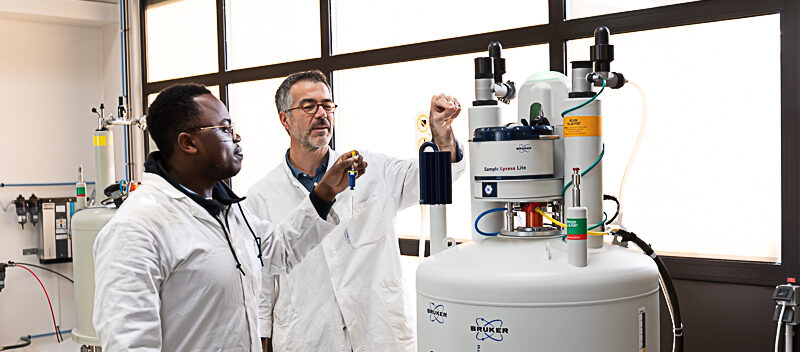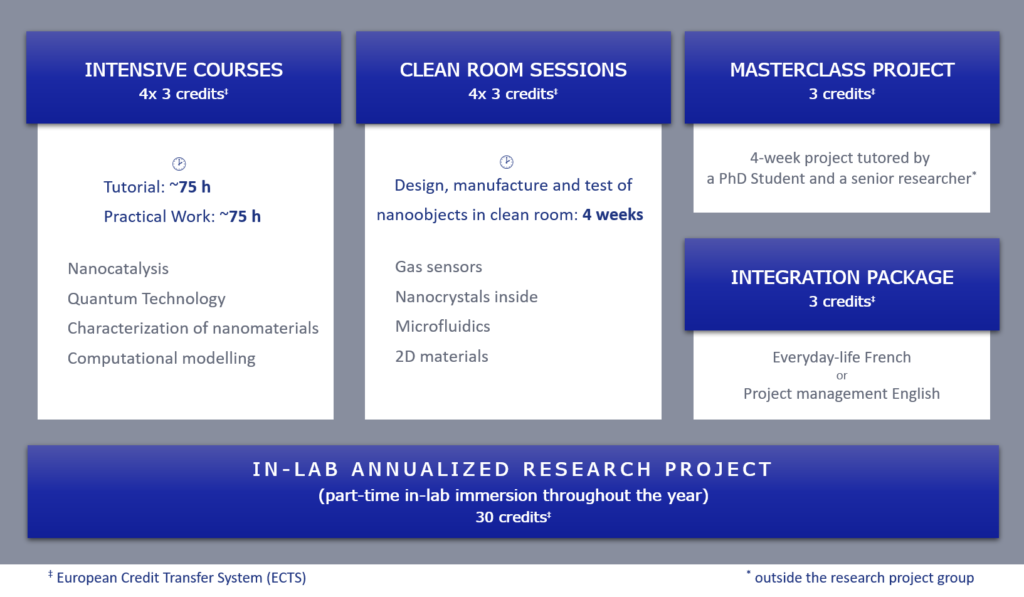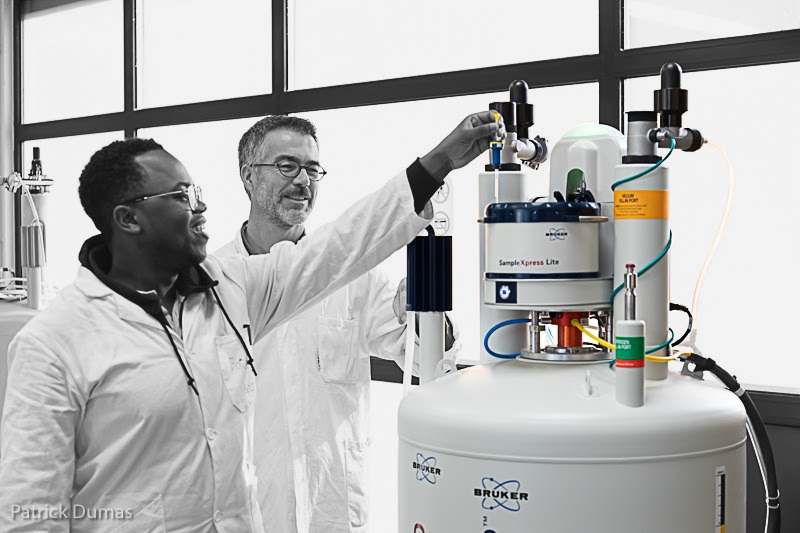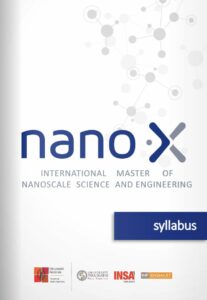
Overview
|
Training program at a glance
The NanoX Master of Nanoscale Science & Engineering has been designed to be a pre-thesis. It offers a unique combination of intensive hands-on courses and in-lab immersion. We provide an interdisciplinary field of knowledge and skills, combining physics, chemistry, materials and engineering, with an emphasis on students’ hands-on experience.

You can have a look at NanoX technical facilies and teaching facilities. Several tutorials will take place at the AIME clean rooms, please take a virtual tour (select AIME on the left of the screen).
Scholarships
Foreign students
- French public institutes and the Erasmus+ programme offer a large number of scholarships for foreign students to help them finance their studies in France and Europe. See the CampusFrance.org website.
- NanoX also offers scholarships to talented foreign students (travel expenses, tuition fees and from 615 € to 800 € monthly scholarship, depending on your income). The amount is voted by the committee after acceptation of your application.
French students
- Standard internship grant (~3.6 k€/year)
All students enrolled in the MSc of Nanoscale Science & Engineering will benefit from the Toul’Box « essentiel » pack (+ options), if needed.
Research projects
Have a look at our internship offers on our dedicated page.
Job opening
Most senior scientists earned a doctoral degree or a master’s degree. APhD is a 3-year work experience as a research assistant, that may favor entering the high-tech job market after completing the PhD.
At the end of the master, the graduates will be ready to candidate to Doctoral programs, such as those offered by the Materials Science doctoral school in Toulouse. For more information, please visit our dedicated page.
English Proficiency
For non-native English applicants, one of the following proof of English proficiency is required:
- TOEIC > 750
- TOEFL iBT > 85
- IELTS > 6.5
- CAE/FCE exam score > 160
- College English Test, CET 6
- a certificate from your institution stating that the medium of instruction has been English
FAQ
The International Master of Nanoscale Science & Engineering combines physics, chemistry, materials science, theory and experiments. I am a chemist, a lot of prerequisite in physics and mathematics are probably needed. Should I be scared?
- No. Not at all. For example, the hands-on tutorials at the AIME clean room are designed for post-bachelor students with a good general science knowledge and know-how.
What are the tuition fees in France?
- €243 per year at the master level for European Union (EU) students,
- €3,770 for non-EU students. Yet, and given an official decision of the University Paul Sabatier, the total registration fee that non-EU students will be required to pay for the 1-year Nanoscale Science end Engineering degree will also be €243 for the 2021-2022 school year.
€243 is quite cheap. Do such low-cost tuition fees involve a « third-rate » master program ?
- No. Definitely not. Choosing to study in France means gaining access to high-quality programmes and facilities. Tuition fees are low in public Higher education institutions because the French government subsidizes higher education. The true cost of education is the same as it is elsewhere in the world, the difference is that in France the government assumes a large share of that cost. Please discover our Technical facilities to see the equipment made available to our students.
The Ecandidat application site is in French! Although Google translation is my friend, I do not understand what is required 🙁
- Don’t worry. Send us the application documents and we might provide some help.


